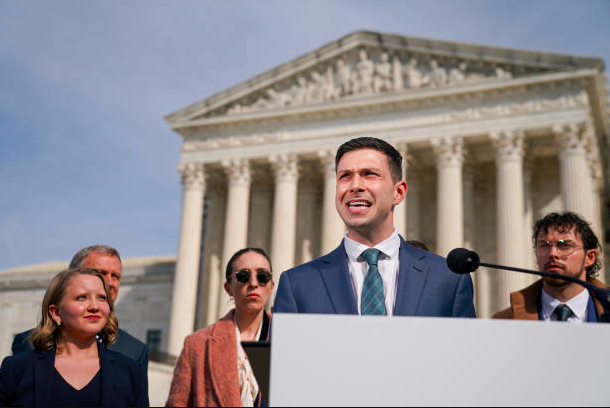On Friday, Governor Ron DeSantis vetoed a comprehensive social media bill that aimed to prevent Florida residents under 16 from creating accounts on platforms such as TikTok and Instagram, even with parental consent.
Mr. DeSantis explained in a post on X that he vetoed the teen social media ban bill because the state’s Legislature was on the verge of creating a different, superior bill that acknowledged parents’ rights.
Last week, the governor indicated that the measure exceeded its boundaries by overriding parental authority.
Following the veto announcement, Paul Renner, a Republican and the speaker of the Florida House of Representatives, expressed on X that the new bill would provide enhanced protection for children against online dangers.
Several states have recently enacted laws mandating parental consent for children’s social media accounts.
However, the Florida measure vetoed by Mr. DeSantis was intended as a broader prohibition.
Social networks were expected to verify users’ ages, prevent individuals under 16 from creating accounts, and close accounts that were known or suspected to belong to underage users.
After the state’s Legislature passed the bill last week, parents’ groups, including the Florida Parent-Teacher Association, had urged Mr. DeSantis to veto it.
The bill would likely have been subject to constitutional challenges regarding young people’s rights to freely seek information.
It would have probably sparked online protests from teenagers who depend on social apps to stay in touch with friends and family, showcase their creativity, stay updated on news, and follow various trends.
NetChoice Cheers DeSantis Veto, Cites Privacy and Control Concerns

NetChoice, a trade group representing major tech companies like Meta, Snap, and TikTok, expressed its approval of Mr. DeSantis’s decision to veto.
According to an email from Carl Szabo, NetChoice’s vice president and general counsel, the measure, if signed, would have shifted the balance of power from parents to the government and Silicon Valley.
He mentioned that the bill’s provision for social media sites to verify users’ ages would have resulted in extensive data collection in the state.
Florida lawmakers are considering changes to a bill that aims to regulate sexually explicit online content deemed harmful to minors.
The proposed amendments would also target specific social networks with addictive features such as endless content scrolls.
The proposed legislation aims to mandate age verification on adult websites to prevent access by minors.
In the past two years, Louisiana, Utah, Mississippi, and several other states have implemented comparable legislation.
The Supreme Court is currently considering free speech challenges to additional social media laws, in cases that have the potential to significantly impact the internet.
One case pertains to a 2021 Florida statute that is currently on hold. The statute aims to prevent platforms such as Facebook and X from permanently banning political candidates.
NetChoice is one of two tech trade groups challenging the state laws in the Supreme Court cases.
However, the bill in Florida that Governor DeSantis vetoed on Friday was one of the most restrictive measures passed by a state legislature in response to a growing national push to regulate platforms such as TikTok and Instagram for child safety reasons.
During the past 18 months, several states have implemented new online safety regulations that permit younger teenagers to access social media platforms.
